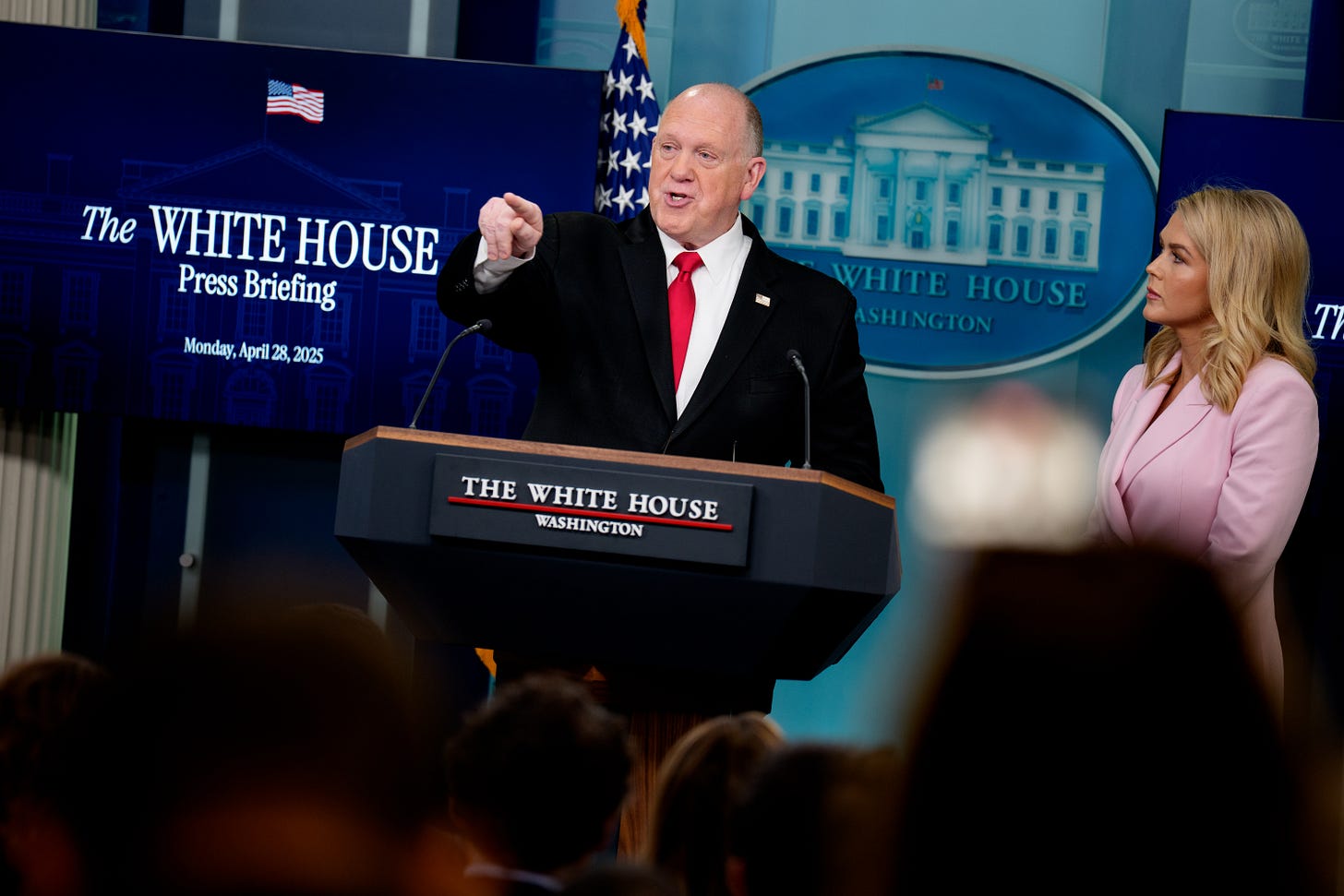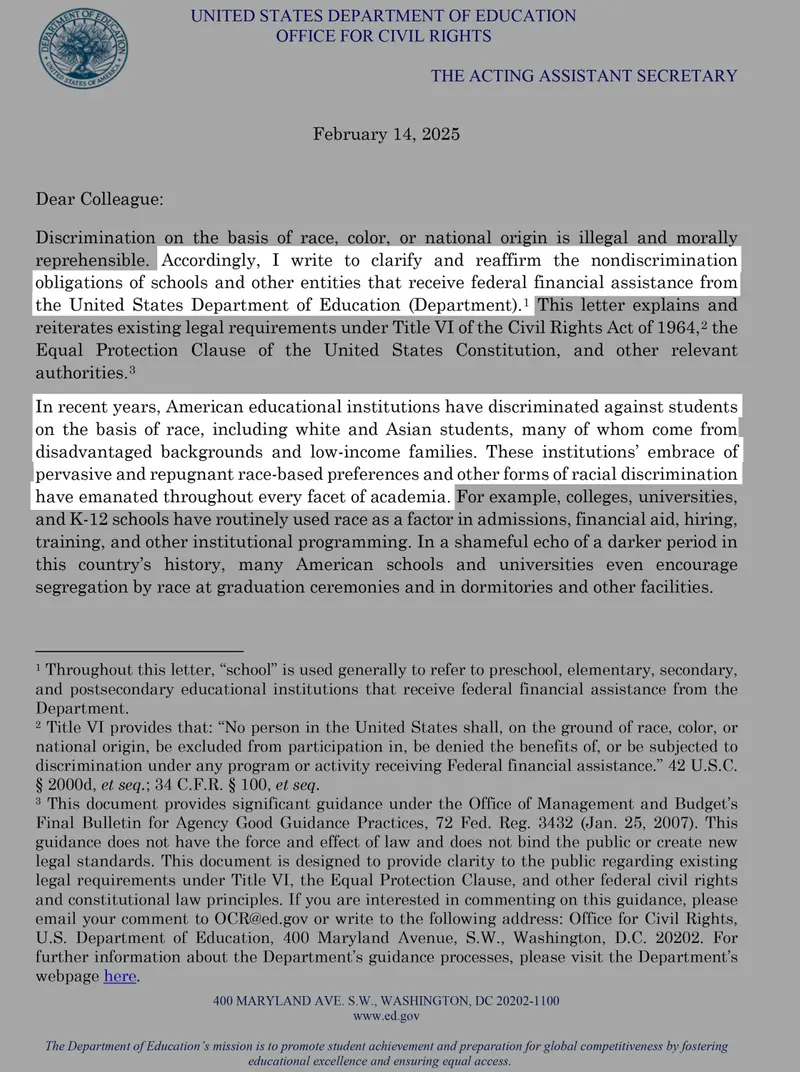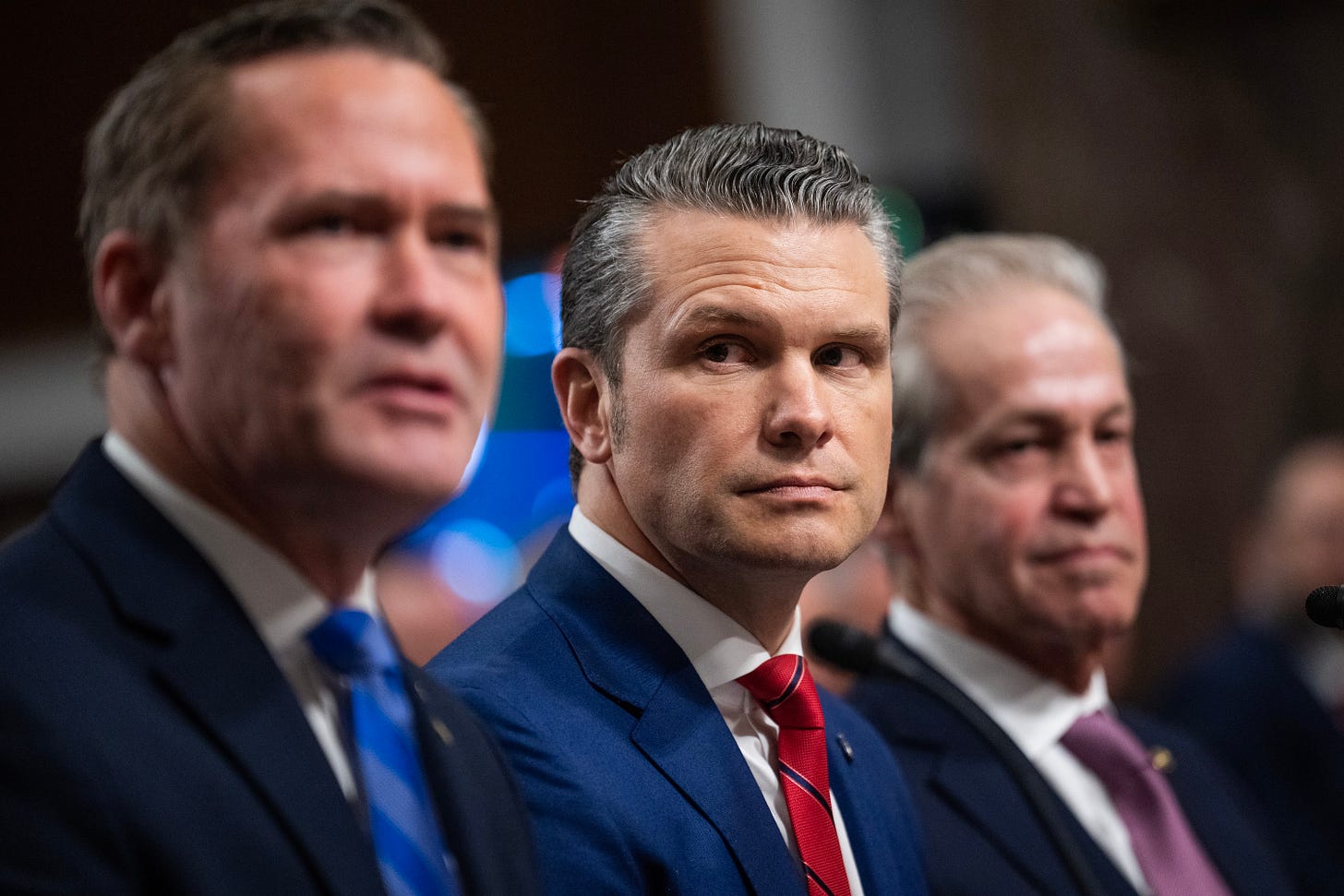
Trump’s Immigration Policy Is a Failure Built on Lies
May 2, 2025
A Gutted Education Department’s New Agenda: Roll Back Civil Rights Cases, Target Transgender Students
May 2, 2025THE CATHOLIC CHURCH IS KNOWN for its pageantry—but its operational security deserves recognition, too. In preparation for the next papal conclave, the Vatican has taken extraordinary steps to protect the sanctity of its deliberations. Cardinals will reportedly surrender every device—phones, smartwatches, laptops. The doors will be sealed. Even the floorboards are being replaced with ones that block cell phone signals. It’s a lockdown worthy of a SCIF—a Secure Compartmented Information Facility.
Now contrast that with the operational security in today’s Pentagon.
In recent weeks, we’ve learned that Secretary of Defense Pete Hegseth shared sensitive details about U.S. military strikes in two separate Signal chats—one with senior national security officials and another with his wife, brother, and personal lawyer. Signal offers basic encryption, but everyone in the national security world knows it’s not secure enough for operational details. The U.S. government spends huge amounts of money and effort making sure the world’s most sophisticated surveillance can’t pick up on our leaders’ most sensitive conversations. A free app just doesn’t measure up.
It doesn’t matter whether the messages Hegseth sent were “attack” plans or “war” plans. They included details about time-sensitive operations with specific targets, to be carried out by Americans in the air and at sea. I remember a sign on the wall of the House Intelligence Committee during my eight years there: “Loose lips sink ships.” It may be a cliché, but it’s also a hard truth.
And it doesn’t stop there. Hegseth reportedly had Signal installed on a private computer in his Pentagon office so he could access the app in secure areas where cell phones are banned. It’s hard to imagine that meets basic opsec standards. Yet somehow, he has so far avoided accountability. Instead, National Security Advisor Mike Waltz—the original creator of the Signal chat that mistakenly included journalist Jeffrey Goldberg—is being shown the door, albeit with a soft landing: a nomination to serve as ambassador to the United Nations. If he’s confirmed, the White House may claim that Signalgate has been resolved.
Whether or not the scandal continues to dog the beleaguered secretary of defense, his Pentagon is in disarray. Three of his own aides were recently marched out of the building after being accused of leaking information and his chief of staff abruptly resigned. His former spokesman has publicly denounced him for incompetence. Civil servants are reportedly being asked to submit résumés to prove their patriotism. Senior generals are being frozen out of planning meetings, undermining the military chain of command.
The damage caused by Hegseth’s mismanagement undermines the credibility of our military leadership. The threats we face are intensifying. In fact, the bipartisan Commission on the National Defense Strategy, which I recently chaired, found that the United States is no longer confident it can deter or prevail in a major regional conflict—especially not with China, whose military capabilities in the Western Pacific are catching up to our own.
We warned that the United States must project all elements of national power—military, diplomatic, economic, technological, and soft power. Our adversaries are doing just that. China and Russia have formed a “no-limits” partnership, and their collaboration with Iran and North Korea could turn any regional crisis into a global conflict. To compete, the United States must break down bureaucratic silos, integrate strategy across agencies, and rebuild the capacity of our industrial base. This requires discipline, coordination, and trust—none of which is possible in a leadership vacuum.
Instead, we’ve seen a secretary of defense fire a universally respected chairman of the Joint Chiefs, force out a four-star general who led the National Security Agency and Cyber Command, and prune the ranks of female three- and four-star officers. He has also dismantled the Pentagon’s Office of Net Assessment, a strategic gem that helped us think beyond the tyranny of the urgent.
It’s increasingly clear that Hegseth’s days atop the Pentagon are numbered. The sooner a responsible secretary of defense is nominated, the better. There are proven leaders in the Senate and elsewhere who would be easily confirmed and could begin restoring order on day one. But the next secretary must be given the authority—not just the title—to lead effectively. What we need isn’t just military muscle or a “warrior ethos.” We need serious people for serious times—people who understand the stakes, can implement a smart strategy, lead a serious team, and equip and inspire the people who put their lives on the line to defend this country.
Great Job Jane Harman & the Team @ The Bulwark Source link for sharing this story.






